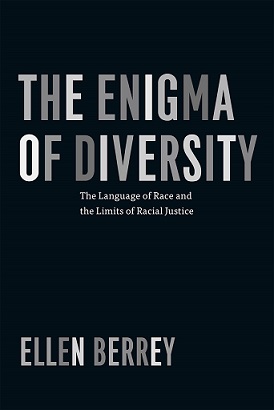Ellen Berrey on diversity for Salon
Ellen Berrey’s The Enigma of Diversity: The Language of Race and the Limits of Racial Justice problematizes “diversity” for the twenty-first century, employing years of fieldwork, case studies, and historical research to document just how ubiquitous and weakened the term has become, courtesy of its championing by a plethora of causes, each to often symbolic and distinctly competitive ends.
In a recent op-ed for Salon, you can read a teaser for the arguments Berry further substantiates in her book, as she addresses the word’s specific usage by discomfited white people confronted by/with the topic of race:
Here’s what I’ve learned: diversity is how we talk about race when we can’t talk about race. It has become a stand-in when open discussion of race is too controversial or — let’s be frank — when white people find the topic of race uncomfortable. Diversity seems polite, positive, hopeful. Who is willing to say they don’t value diversity? One national survey found that more than 90 percent of respondents said they valued diversity in their communities and friendships.
The term diversity has become so watered down that it can be anything from code for black people to a profit imperative. Consider the cringe-worthy experience I had sitting in on a corporate diversity training, where initiates learned that diversity could mean our preferences for working at daytime or at night, or our favorite animal. As a Deloitte study showed, many Millennials take it to simply mean one’s unique culture and perspective. (Apparently they are listening to their diversity trainers).
However much it might feel good, though, diversity talk is not enough. At this paradoxical time, when we are at once commemorating fifty years of civil rights gains while questioning racism in policing and prisons, it allows us to sidestep persistent, alarming racial inequalities. Its appeal makes it downright pernicious. It lets white people off the hook from doing something about our own culpability in the problem — like our inclination to live near people like us (i.e. white) or to put in a good word with the boss about our friends (i.e. probably white).
To read more about The Enigma of Diversity, click here.
